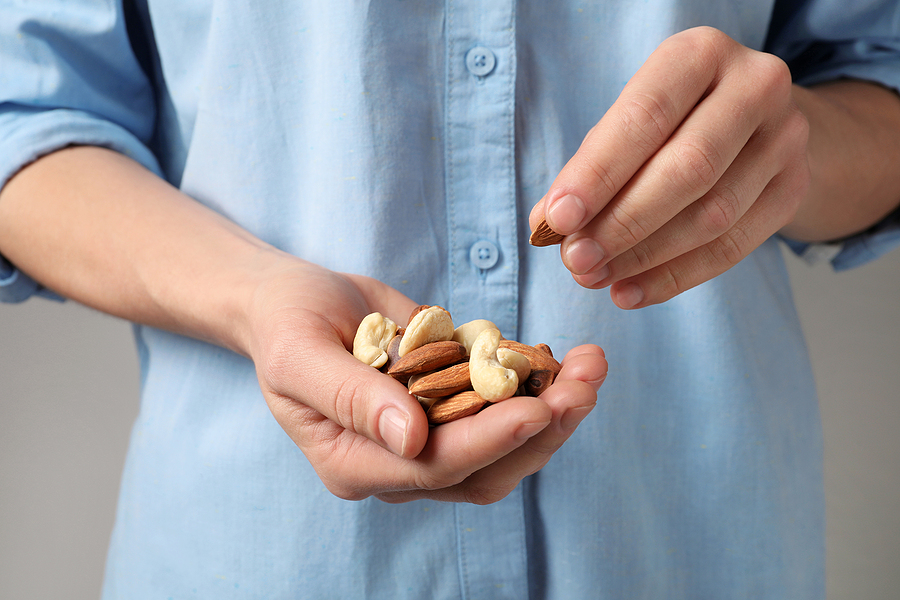Updated 11/27/2022
A long time ago, my friend Catherine tried the “black coffee” diet. If you’re not familiar with it, it’s pretty much exactly what it sounds like.
She ate very little, and drank black coffee with every “meal.” She dropped a few pounds in just a week, which led to her raving about the crash diet to everyone she talked to.
I told Catherine then what I still say now — that type of diet is simply a bad idea. In fact, any fad diet is likely to make a weight issue harder, rather than easier, to control.
Losing weight that quickly through such rigid means is hard on your organs and absolutely unsustainable.
And eating too few calories for any length of time deprives your body of the essential nutrients it needs and puts it into “starvation mode.” That means it will actually hold on to any excess weight it can, so you’re likely sabotaging your long term goals for short term success.
But what about more moderate or “normal” coffee consumption? Can it help with weight loss?
Nearly one-third of Americans say that brewing coffee comes before any other morning activity. It helps us start our day. It can give us a much needed “pick-me-up” in the afternoon.
We socialize over coffee and there’s a coffee shop on almost any corner in any city across the country. But can this much revered drink help us in our weight loss journey? Or is it making things harder than they need to be?
The research on the impact of coffee on weight is mixed, but one thing is for sure — no medical professional will advocate for the rigid limitations of the so-called “coffee diet.”
That said, coffee in moderation is an okay indulgence, and yes– it may even carry some health benefits.
Let’s take a look at what the research says about how caffeine impacts weight and your health. Then, I’ll give you a few tried and true tips for sustaining a healthy weight – whether you enjoy a cup of coffee now and then or not!
The impact of caffeine on weight
The real question here isn’t about coffee at all. It’s about caffeine. But 75% of caffeine consumption in the US is in coffee, and Americans consume 400 million cups of coffee per day, which is why coffee is often the focus of this conversation.
Some research does suggest that increased consumption of caffeine is associated with higher weight loss as well as maintaining weight loss. But it’s not quite as simple as that.
First, the idea that caffeine can speed metabolism may be true – but it could be just a tiny boost.
The increase in calories burned by caffeine, according to one meta-analysis, is about 1 calorie per mg of caffeine, up to 100 calories per day. Since one eight ounce cup of coffee contains approximately 95 mg of caffeine, that would mean that any more than a cup won’t make much of a difference.
On the other hand, one study found that 4.5 mg of caffeine per pound of body weight increased metabolism by 13%. But for a 150-pound woman, that would mean seven cups of coffee per day to reach this impact on the metabolism.
That’s a lot of coffee – and the negative impacts of that much caffeine outweigh any benefit to the metabolism!
Another 2021 study found that drinking a strong coffee about half an hour before exercising led to more fat-burning. And, interestingly, this effect was more pronounced in the afternoon.
Caffeine can also, perhaps, help you exercise more consistently, since it seems to change the perception of how hard you are working during physical activity.
One very small study demonstrated that participants who received caffeine before working out felt like it was less difficult than those who received a placebo. Other research has had similar results, but again, the studies were very small, so more research is necessary in this area.
Caffeine also helps to suppress the appetite, particularly in those who are overweight. This may be due to reduced levels of the hunger hormone ghrelin. Aside from hormonal changes that impact hunger, a cup of coffee or tea fills your stomach, which can leave you feeling more full.
Coffee and cravings
Have you ever noticed how coffee is often accompanied by a sweet treat – a cookie, doughnut or dessert? It turns out, there may be a reason for that.
A small study published in the Journal of Food Science in 2017 concluded that drinking coffee can trigger sweet cravings, which makes us more likely to reach for something sweet to satisfy that urge.
According to this study, caffeine dampens taste receptors so we don’t realize how sweet something is. So even if you put sugar in your coffee (as was the case for participants in this study) you may be left wanting more.
The dangers of too much caffeine
I always tell my clients that they need to weigh the risks against the benefits whenever considering trying something that will impact their health.
In the case of caffeine, I believe the risks associated with overconsumption outweigh any potential weight loss benefit.
One of the most important ways too much caffeine can adversely impact health is by disrupting sleep.
Sleep is vitally important to all aspects of health, including hormonal balance and metabolism. Poor sleep is also associated with carbohydrate cravings and increased appetite.
Caffeine, a stimulant, blocks the effects of a brain chemical, adenosine, that helps make you tired. While this may be your goal in the morning to get yourself going, caffeine consumption too late in the day can make it difficult to get the sleep you need.
Another negative impact of too much caffeine that must be discussed is what it does to your adrenal glands. Caffeine is perceived as stress in our bodies, which activates the stress response and increases levels of the stress hormones adrenaline, noradrenaline and cortisol.
The problem is that surge of energy from the stress response blocks other functions, decreasing appetite and digestion, among other things, to deal with the emergency. But after the perceived danger has passed, your body will strive to replace the energy just expended, and your appetite may increase.
The other impact of lingering high levels of cortisol is the hormonal imbalances that result. Long term, this can lead to adrenal fatigue, which comes with its own set of often debilitating symptoms, including weight gain.
Women with insulin resistance need to be even more conscious of the caffeine they consume, since cortisol also impacts glucose levels in the bloodstream. This glucose prompts the pancreas to boost insulin production to help it enter your cells and give you a boost of energy.
But caffeine exaggerates the responses, which means your morning coffee may lead to a blood sugar drop in the late afternoon. If you still have things to get done you might reach for another cup of coffee to keep you going, leading to an endless cycle of dysfunctional hormones.
Finally, caffeine in high doses can increase blood pressure and result in major health issues for those at risk for cardiovascular disease.
What’s in Your Coffee Matters for Weight Loss
Your personal preferences for how you drink your coffee is another thing to consider when thinking about the impact of coffee on weight.
Black coffee, for instance, is low in calories. But the popular lattes and sweet coffee drinks so readily available are packed with sugar (or sugar substitutes, which aren’t any better for your health) and can contain far more calories than you know.
For instance, one Grande Vanilla Latte from Starbucks has 284 calories when made with whole milk. If you’re eating 2000 calories per day, the standard recommendation for a moderately active adult woman, those drinks add up! And if you’re trying to lose weight, your calorie intake is probably even lower.
Wouldn’t you rather save those calories for food?
Quick tips for sustainable weight loss
So if coffee isn’t the answer, what can you do to promote weight loss or maintain a healthy weight? The simple answer is to make healthy lifestyle choices as often as possible. Here are a few quick tips to get you started:
- Avoid processed foods and choose fresh, whole foods as often as possible.
- Be sure your plate has a variety of colorful vegetables to get all the essential nutrients you need.
- Keep yourself as active as possible. If you don’t love what you’re doing, you aren’t likely to continue, so find an activity that brings a smile to your face and joy to your heart! For me, that’s dancing, but anything that raises your heart rate (even slightly) and keeps you moving is fine.
- Don’t skimp on your sleep. Sleep is so important to keep your body functioning well – and that includes your metabolism!
- Address any trauma, past or current, that may be causing emotional eating.
- If you have a lot of weight to lose, work with a qualified professional to find a program that works for you. My weight loss program considers the unique needs of each individual for sustaining weight loss long term.
The verdict: A little bit of coffee may help – but it’s not the ultimate answer
I know it’s tempting to buy into “quick weight loss” hype, but coffee isn’t the way to reach your goals (even Catherine eventually agreed with me). You have far more power over your life than you think. You don’t need to rely on crazy high levels of caffeine to keep you moving forward. A few conscious changes can make a big difference. A cup of coffee in the morning is fine — but skip the pastries and drink it black!
Resources:
https://www.mayoclinic.org/healthy-lifestyle/weight-loss/expert-answers/caffeine/faq-20058459
https://www.healthline.com/nutrition/coffee-and-weight-gain#weight-loss
https://paleoleap.com/5-things-about-caffeine-weight-loss/
https://www.sciencedaily.com/releases/2021/03/210322175042.htm








